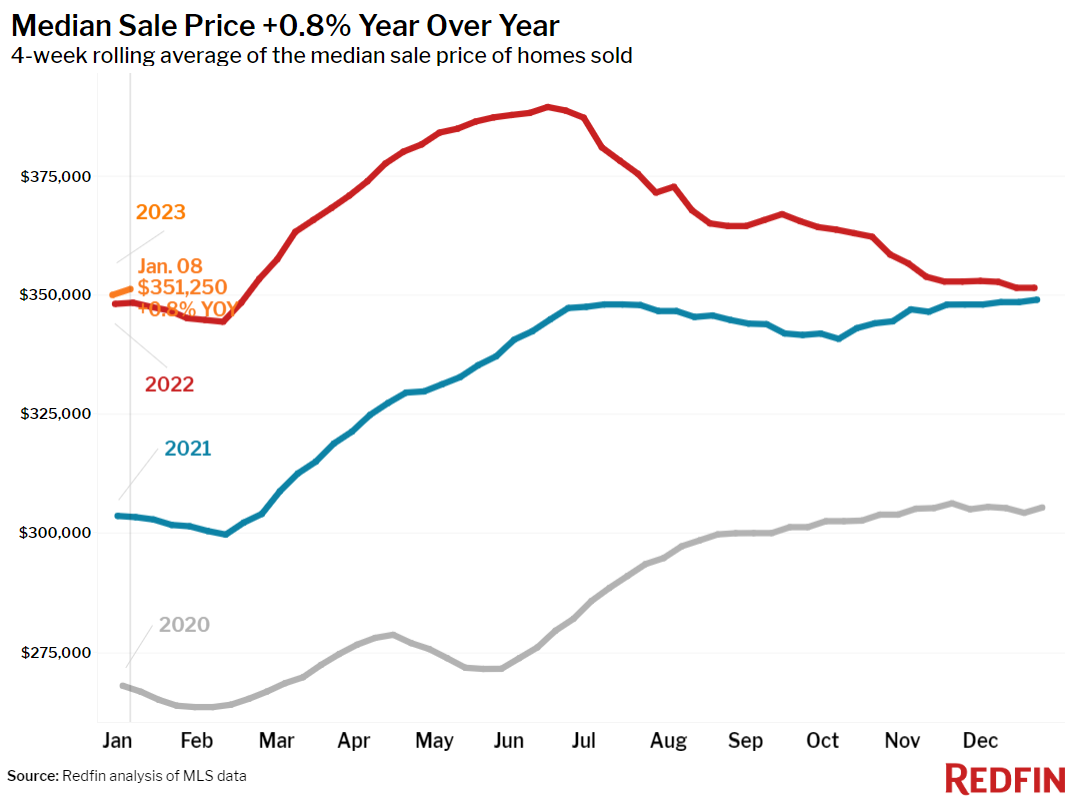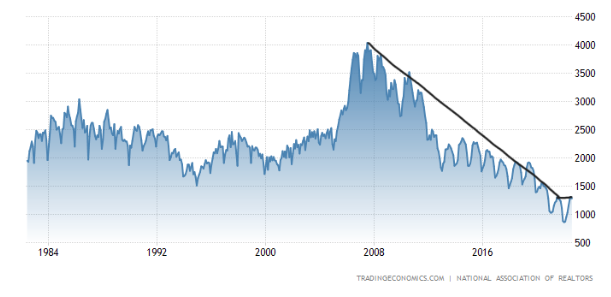The housing market is an essential aspect of any economy, playing a crucial role in driving economic growth and influencing consumer spending. With the ever-changing economic landscape, it is essential to understand the predictions and trends in the housing market to make informed decisions as a potential homebuyer or investor.
In this article, we will delve into the key factors that are expected to shape the housing market in 2023. We will explore the impact of economic factors, regional variations, interest rates, emerging technologies, and supply and demand dynamics on the housing market. Additionally, we will provide insights into the future outlook and potential investment opportunities in the housing sector.
Economic Factors Influencing the Housing Market
The performance of the housing market is heavily influenced by economic factors such as GDP growth, employment levels, and inflation rates. These factors impact consumer confidence, purchasing power, and demand for housing. Let’s take a closer look at how these economic factors are predicted to shape the housing market in 2023.
GDP Growth
GDP growth is a significant indicator of the health of an economy and has a direct impact on the housing market. In general, higher GDP growth leads to increased consumer spending and confidence, resulting in a stronger demand for housing.
According to the International Monetary Fund (IMF), the global economy is expected to grow by 3.5% in 2023, following a projected growth of 6% in 2022. This positive outlook is expected to have a favorable impact on the housing market, with increased consumer spending and confidence translating to robust demand for homes.
However, there may also be risks associated with high GDP growth, such as rising inflation rates and interest rates. Homebuyers and investors should keep a close eye on these developments, as they can affect the affordability of housing in the long run.
Employment Levels
Employment levels play a critical role in shaping the housing market, as they directly impact the income and purchasing power of potential homebuyers. A healthy labor market with low unemployment rates leads to higher consumer spending and confidence, resulting in an increased demand for housing.
The International Labour Organization (ILO) predicts that global employment levels will continue to recover from the COVID-19 pandemic, with a projected increase in employment by 2.4% in 2023. This positive outlook is expected to support the housing market’s growth, with more people having steady jobs and income to support their housing needs.
However, it is essential to note that regional variations in employment levels may still exist, which can impact the housing market differently in various areas.
Inflation Rates
Inflation has a significant influence on the housing market, as it affects the cost of living and interest rates. High inflation rates can make homes less affordable, while low inflation rates can increase demand for housing, resulting in price appreciation.
The IMF predicts that global inflation rates will average at 3.5% in 2023, following an estimated 2.9% in 2022. This modest increase in inflation is expected to have a neutral impact on the housing market, with stable prices and moderate demand.
However, it is essential to monitor any significant changes in inflation rates, as sudden spikes can disrupt the stability of the housing market.
Regional Variations in Housing Trends
The housing market is not homogenous, and trends and predictions may differ significantly depending on the region. Let’s explore some of the regional variations in housing trends and how they may impact the overall housing market in 2023.
North America
North America’s housing market is predicted to experience moderate growth in 2023, following a strong rebound in 2022. The United States and Canada are expected to see an increase in demand for housing, driven by improving economic conditions, low-interest rates, and government support measures.
In the United States, the National Association of Realtors (NAR) predicts a 1.9% increase in existing home sales in 2023, following an estimated 7% increase in 2022. In Canada, the Canadian Real Estate Association (CREA) projects a 4.4% increase in home sales in 2023, after a projected 14.8% increase in 2022.
However, regional variations within North America may also impact the housing market. For example, housing markets in major urban centers such as New York and Toronto may experience higher demand and price appreciation compared to smaller cities and rural areas.
Europe
Europe’s housing market is expected to remain stable in 2023, with moderate growth predicted in some regions. The European Central Bank (ECB) forecasts a gradual recovery in the housing market, supported by low-interest rates and government stimulus measures.
Countries like Germany and France are expected to see moderate growth in the housing market, while Southern European countries like Spain and Italy may experience slower growth due to economic challenges. However, overall, the European housing market is expected to be resilient, with no major disruptions foreseen.
Asia-Pacific
The Asia-Pacific region’s housing market is projected to continue its strong performance, driven by robust economic growth and increasing urbanization. China, India, and South Korea are expected to lead the region in terms of housing market growth, with rising demand for homes from a growing middle class.
However, some countries in the region, such as Australia, may face affordability challenges due to high housing prices. This could lead to a slowdown in housing market activity in certain areas, highlighting the importance of regional variations in the housing market.
Impact of Interest Rates on Home Buying
Interest rates play a significant role in the housing market, impacting the cost of borrowing and affordability of homes. Let’s explore how interest rates are predicted to influence the housing market in 2023.
Rising Interest Rates
In general, rising interest rates make homes less affordable and can slow down the demand for housing. This is because higher interest rates increase the cost of borrowing, making it more expensive for homebuyers to finance their purchase. As a result, some potential homebuyers may delay their plans to buy a home, leading to a decrease in demand.
The Federal Reserve (Fed) has indicated that it may start raising interest rates in 2023, following a period of record-low rates. This could impact mortgage rates, which have been at historic lows, and make homes less affordable for some buyers.
However, the Fed has also stated that any changes in interest rates will be gradual and based on economic conditions. Therefore, it is crucial to stay updated on any developments in the interest rate landscape and how they may impact the housing market.
Low-Interest Rates
On the other hand, low-interest rates can stimulate demand for housing, as they make homes more affordable for potential buyers. This can lead to increased competition and bidding wars, resulting in price appreciation in the housing market.
In 2023, it is expected that interest rates will remain relatively low, supporting the housing market’s growth. The Fed has indicated that it will only raise interest rates if there is sustained economic recovery, indicating that low rates are likely to continue for the foreseeable future.
Emerging Technologies in Real Estate

Technology is rapidly transforming the real estate industry, and its impact is expected to be even more significant in the coming years. Let’s explore some of the emerging technologies that are predicted to shape the housing market in 2023.
Virtual and Augmented Reality
Virtual and augmented reality technologies have made it possible for homebuyers to view properties remotely, reducing the need for physical visits. These technologies allow potential buyers to take virtual tours of homes, view properties’ layout and design, and even get a sense of the neighborhood.
In 2023, these technologies are expected to become even more prevalent, making home buying more convenient and efficient. This is especially beneficial for international buyers or those looking to purchase in a different city, as it eliminates the need for physical travel to view properties.
Artificial Intelligence
Artificial intelligence (AI) is also set to revolutionize the housing market in 2023. AI-powered algorithms can analyze vast amounts of data, allowing for more accurate predictions and insights into the housing market. This technology can help real estate professionals and investors make more informed decisions and identify potential investment opportunities.
Additionally, AI-powered chatbots and virtual assistants are already being used by real estate companies to handle customer inquiries and provide personalized recommendations. This has made the process of buying or selling a home more streamlined and convenient for consumers.
Housing Supply and Demand Dynamics

The relationship between housing supply and demand is a crucial factor in determining the state of the housing market. Let’s explore how supply and demand dynamics are predicted to influence the housing market in 2023.
Housing Supply
Housing supply refers to the number of homes available for sale or rent in a particular market. In general, an increase in housing supply results in lower prices and higher competition among sellers. However, a decrease in housing supply can lead to bidding wars and price appreciation.
In 2023, it is expected that there will be an increase in housing supply as construction activity picks up, and more existing homeowners list their properties for sale. This increase in supply could help ease some of the affordability challenges faced by potential homebuyers, leading to a balanced housing market.
Housing Demand
Housing demand refers to the number of people seeking to buy or rent a property in a particular market. An increase in housing demand leads to higher competition among buyers and can result in price appreciation. However, a decrease in demand can lead to lower prices and longer time on the market for sellers.
In 2023, housing demand is expected to remain strong, supported by favorable economic conditions and low-interest rates. As more millennials enter the homebuying market and immigration continues to drive population growth in many countries, there will likely be sustained demand for housing.
Future Outlook and Investment Opportunities
The future outlook for the housing market in 2023 is generally positive, with many factors indicating continued growth and stability. However, it is essential to keep track of any potential risks or changes in economic conditions that could impact the housing market’s performance.
From an investment perspective, the housing market presents various opportunities for investors looking to diversify their portfolios. Some potential options include investing in real estate investment trusts (REITs), which allow for indirect ownership of properties, or purchasing rental properties for long-term income generation.
Additionally, emerging technologies in the real estate sector, such as crowdfunding platforms, provide alternative investment avenues for those interested in the housing market.
Conclusion
The housing market is a dynamic and complex sector that is heavily influenced by various economic and technological factors. In 2023, economic growth, employment levels, and inflation rates are predicted to positively impact the housing market, driving demand for homes.
Regional variations in housing trends may also exist, and understanding these differences is crucial for making informed decisions as a potential homebuyer or investor. Interest rates, emerging technologies, and supply and demand dynamics will also play a significant role in shaping the housing market in 2023.
Overall, the future looks bright for the housing market, with various investment opportunities available for those interested in this sector. As always, staying updated on market developments and being aware of potential risks is key to making successful decisions in the ever-changing world of real estate.


